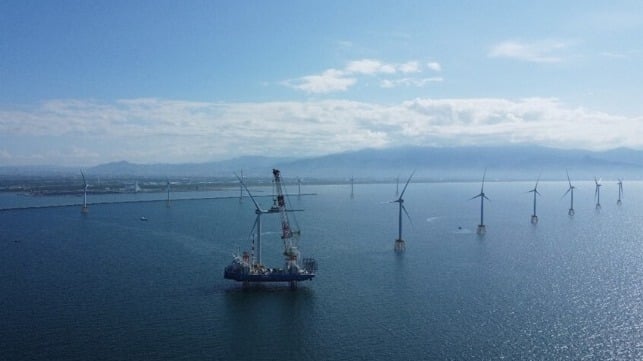Japan Passes Law Allowing Offshore Wind Development in the EEZ

Japanese parliament has passed an amendment bill that will allow offshore wind projects in the country’s Exclusive Economic Zone (EEZ). The government initially introduced this legal reform in January 2024, with hopes of unlocking over 4 million square kilometers of Japanese EEZ for renewable energy development. Currently, Japan’s wind farms are installed in territorial and internal waters.
According to the Japan Wind Power Association (JWPA), the country’s EEZ has the potential to support up to 552 GW of offshore wind capacity. Most of this power will come from deep-water floating turbines.
Some of the key features of the bill include the designation of EEZ areas for offshore wind development. It mandates the Ministry of Economy, Trade and Industry (METI) to establish a council to coordinate projects in consultation with relevant stakeholders. In addition, the bill provides for streamlined government-led environmental assessment procedures to safeguard biodiversity.
“This is great news. Congratulations to the Japanese government for making this possible. Scaling up floating wind is important for increasing Japan’s energy autonomy and resilience,” said Rebecca Williams, Deputy CEO at the Global Wind Energy Council (GWEC).
Japan has set a national target of installing 10GW of offshore wind capacity by 2030, and 30-40 GW by 2040. However, due to factors such as inflation and depreciation of the yen, the business environment for offshore wind development has been greatly affected. This has seen companies such as Mitsubishi announce a review of their projects in Japan, significantly slowing the installation pace. Shell has also recently cut its team focused on Japan's offshore wind energy sector as the company scales back its low-carbon operations.
These challenges have led the government to introduce legal reforms in the sector, in the hope of wooing developers. Besides the EEZ bill, there are reports that Japan is reconsidering a number of offshore wind regulations to reduce risks and cut the cost of projects. One key change is extending project durations to 40 years from the current 30 years. In addition, there is a proposal to relax cabotage laws to allow non-Japanese flagged ships to operate in offshore wind farm areas.
Wind energy plays a key part in the government’s energy plan. Japan looks to phase out its use of coal. Work has begun on the country’s first large-scale offshore project while the government has established a goal is for 10 GW by 2030 and 45 GW by 2040 from offshore wind.
